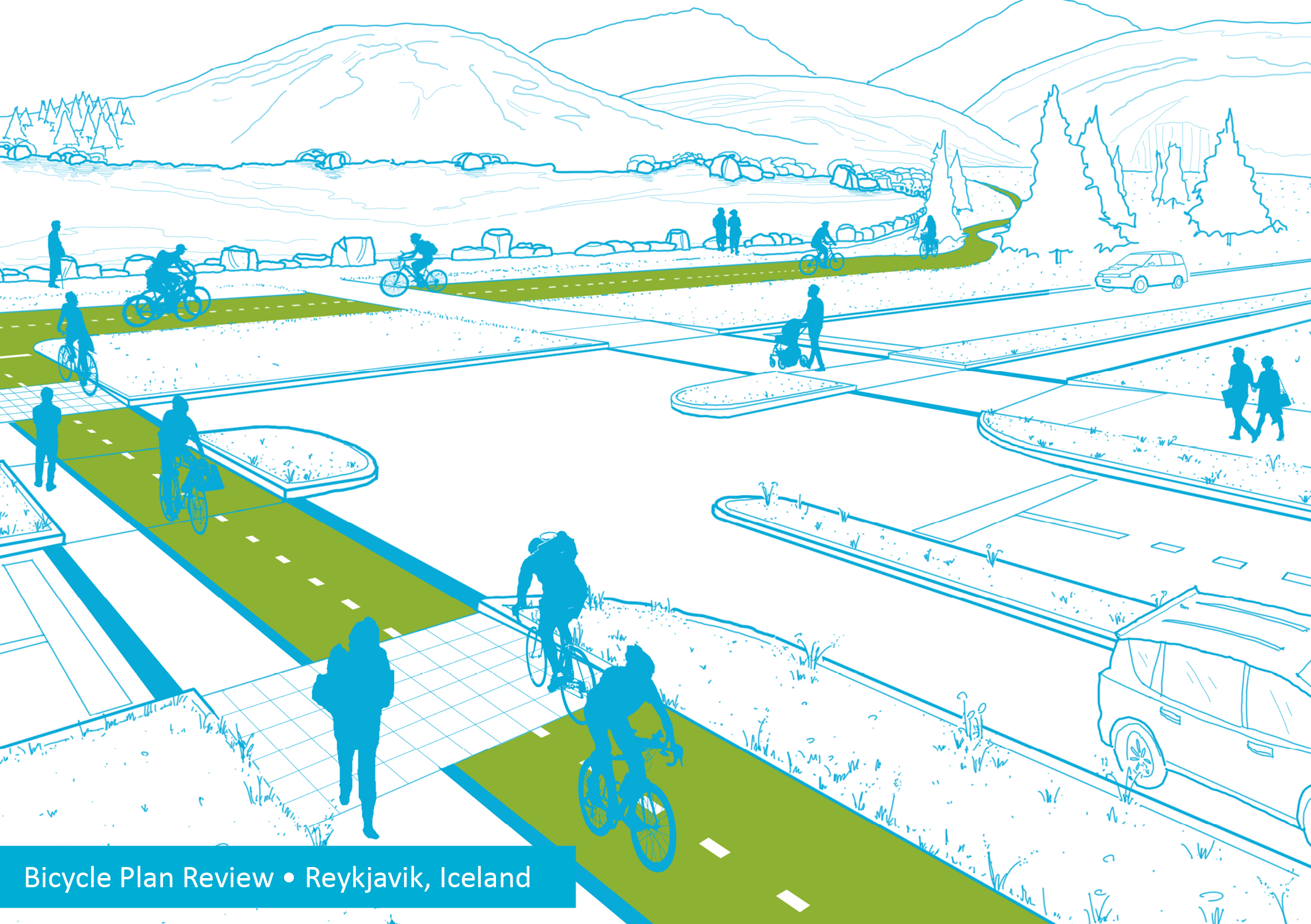Research: The safety of protected Intersections and their use case for Germany (2021-2024) Federal Highway Research Institute (BASt)
The City of Reykjavik has an ambition to improve the quality of cycling amenities in their city. Seeking expert advice and support through the Dutch Cycling Embassy, Mobycon was selected to provide guidance in developing their 2021-2025 Bicycle Plan. To ensure a comprehensive plan was developed, the team reviewed the existing cycling policy and network, as well as provided design reviews for several intersections within the network for quality and efficacy.

The project was broken into two stages, beginning with Mobycon providing input, content, and a critical eye on the existing cycling policy, using Dutch and international best practice as inspiration. To assess the current situation and state of mobility in Reykjavik, Mobycon reviewed the city’s existing spatial characteristics, and its mobility-related strategies including climate, health, inclusion, urban development, and cultural and socio-economic factors. The outcomes of this formed the foundation for the new 2021-2025 Bicycle Plan.
The team challenged the client to think critically about which individuals and groups should be engaged in the planning and implementation of the plan. Sinek’s model of The Golden Circle guided the process, requiring the project team to ask themselves, “Why, How and What?” Their answers guided the formation of the plan’s vision, goals, and ultimately the actions to be taken to fulfil them.
In the second phase, within the role of “critical friend” for content and processes, Mobycon assisted in the development of the new Reykjavik Bicycle Plan and related documents. We used the information, vision, goals and actions established in the first phase to critically analyse Reykjavik’s cycle plan and design guidelines. Throughout the project additional support was provided in facilitating and moderating several interactive work sessions with the project team.


